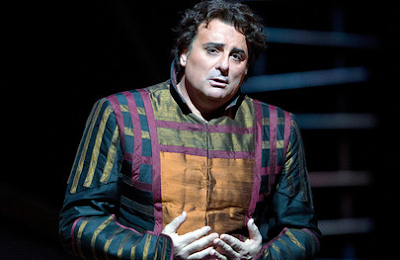The year in concerts, recitals and chamber music.
by Paul J. Pelkonen
 |
| Some say the world will end with fire. But this didn't actually happen either. Image from The Day After Tomorrow © 2004 Centropolis Entertainment/20th Century Fox. |
With the exception of a certain often-mentioned iPhone alarm (that disrupted a Jan. 11 concert by the New York Philharmonic) there weren't too many in-concert disasters in 2012. Or maybe I spent the whole year going to the wrong performances?
Here is a "dozen sampler" of shows that stood out in 2012, from avant-garde chamber works to a unique walk in a freezing cold garden of song. This is part of our ongoing Year in Reviews series here on Superconductor.
Berlin Philharmonic: The "completed" Bruckner Ninth at Carnegie Hall.
"The questions asked by the descending opening theme of the first movement are answered by a dissonant, raging theme from the trumpets and horns. The whole is expressed in a gigantic double fugue over a thick texture of strings. Sir Simon Ratle and his orchestra poured themselves into this music."
San Francisco Symphony: American Mavericks
"Michael Tilson Thomas chopped fruits and vegetables, preparing a smoothie with the blender. He added a banana, and tasted it again. Eventually, he added some blocks and stones to the piano, playing tonal clusters on the strings. (Later, another musician tried the smoothie.)"
aron quartett at the Austrian Cultural Forum
"The aron quartett played the four movements with grit and earnest, with long melodic lines that unfolded from instrument to instrument. Plucked, scraped notes alternated with winding themes tossed from player to player in a performance that made a good case for more New York performances of Erich Zeisl's catalogue."















_Front_Cover.jpg)















